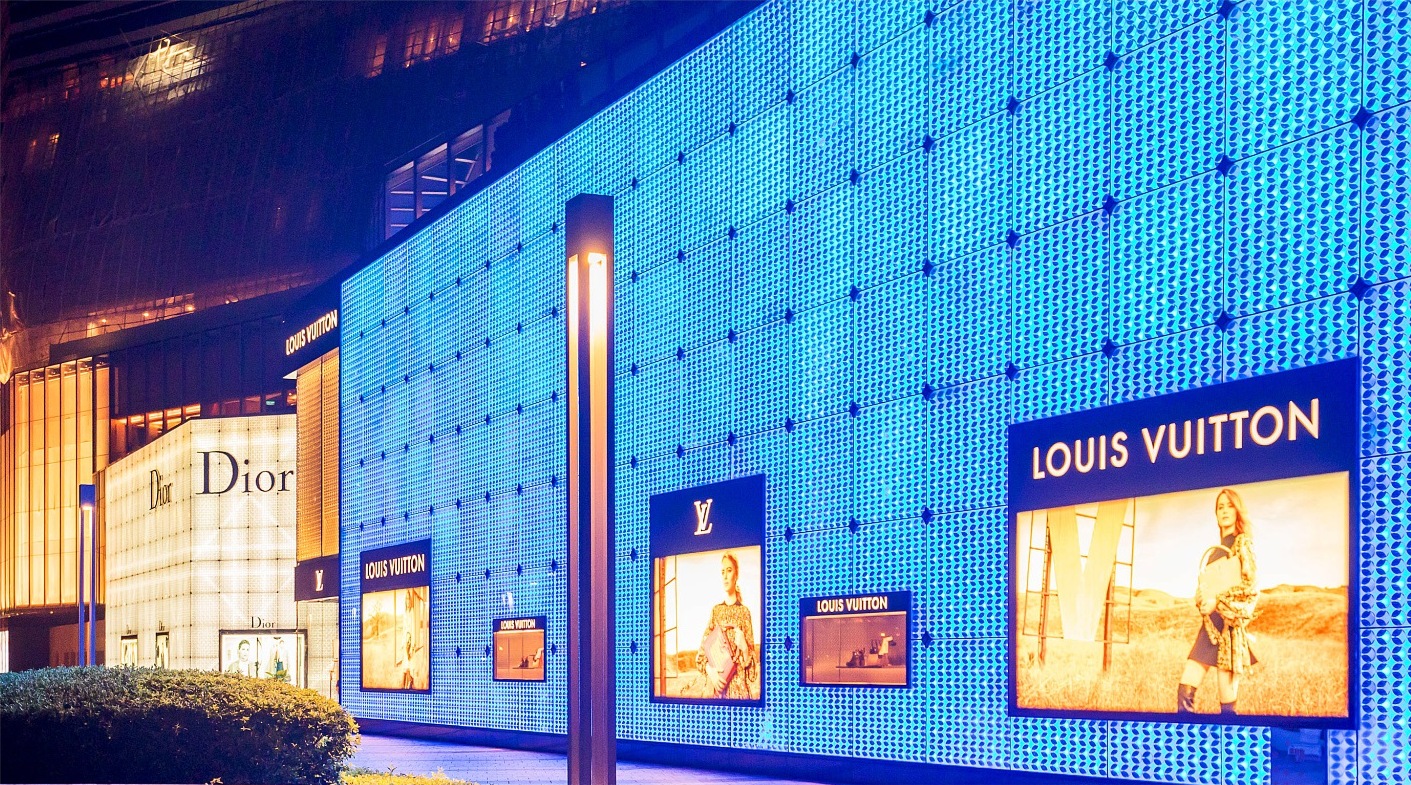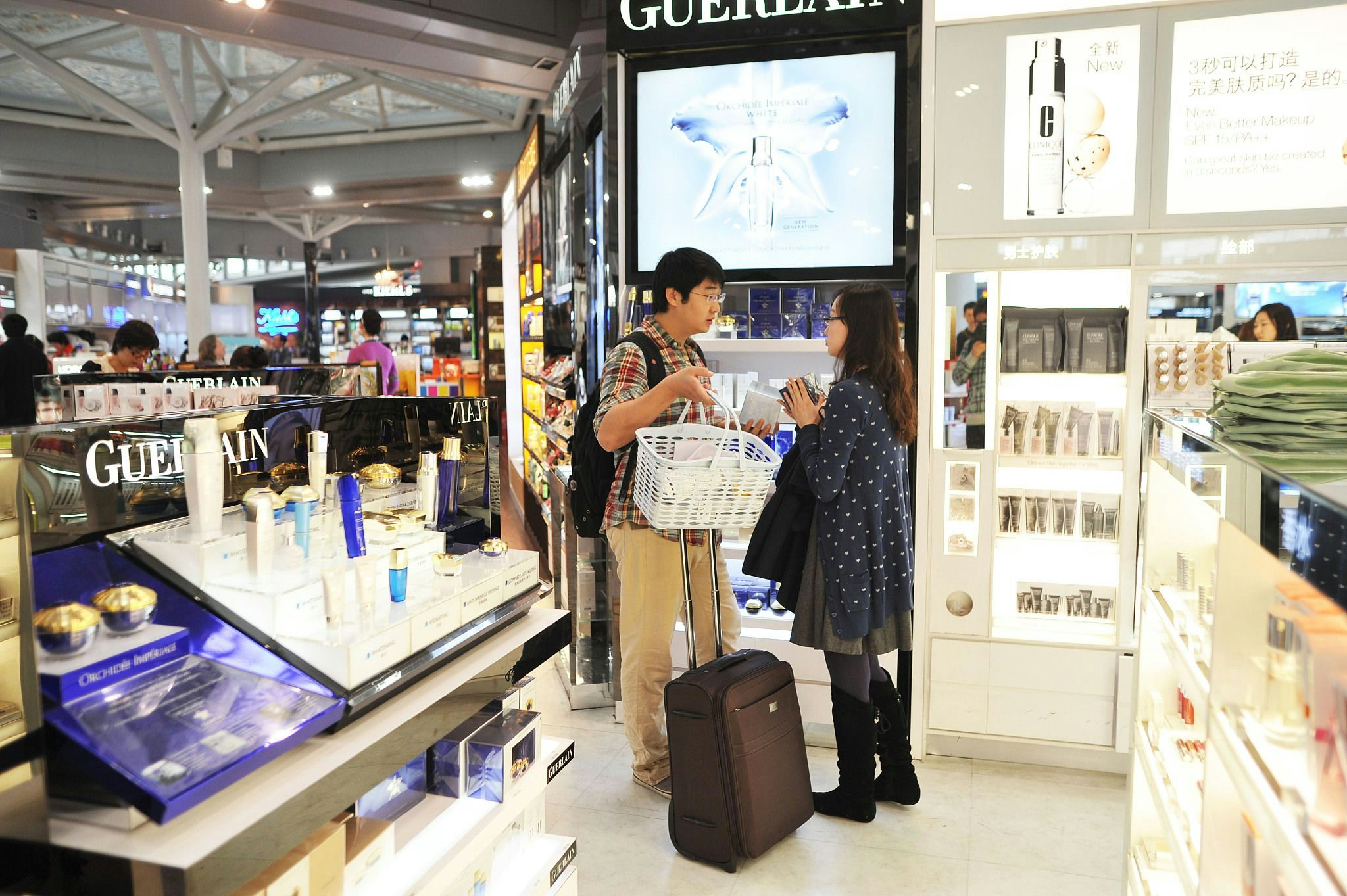Update: Shares of LVMH fell more than 8 percent on Wednesday to 60.81 after the company’s Chief Financial Officer Jean-Jacques Guiony confirmed during a morning conference call an earlier social media report that the Chinese government has enforced stricter rules at its the borders to regulate gray-market imports.
The past Golden Week holiday saw China's customs officials crack down on Chinese daigou shoppers at major international airports, issuing fines to passengers who had exceeded individual import limits. Some experts believe the crackdown, which came ahead of the implementation of China’s new e-commerce law that will start from January 1, 2019, represents the beginning of China’s plan to completely wipe out personal daigou shoppers.
In a separate report by Bloomberg this morning, the publication cited Morgan Stanley's bearish research note on the global luxury sector as contributing to the drop in LVMH's stock price. The financial institution downgraded the sector to underweight from neutral.
LVMH Moët Hennessy Louis Vuitton’s robust growth in the third quarter has soothed concerns over China’s economic slowdown, reassuring investors that the luxury purchasing power of Chinese consumers is still strong.
The world’s leading luxury powerhouse, which owns big-name brands like Louis Vuitton, Celine, Christian Dior, and Givenchy, continued its sales momentum with third quarter “organic” revenue growing 10 percent year-on-year, in line with analysts expectation, the company reported on October 9. In the first nine months of 2018, the company recorded a total of 38 million (€33.1 million) in revenue, an increase of 11 percent from the same period last year.
To break down the growth, LVMH’s “Fashion & Leather Goods,” “Perfumes & Cosmetics” and “Watches & Jewelry” business section each grew by 14 percent year-on-year in the first nine months of 2018. “Selective Retailing,” which mainly refers to its Sephora and DFS entities, achieved organic revenue growth of 8 percent during the same period.
The “Wines & Spirits” business group increased 7 percent year-on-year in the first nine months of the year. In particular, Hennessy cognac's sales volume rose by 4 percent year-on-year in the period, with demand in the United States and China markets growing rapidly. UBS analysts said China's past Mid-Autumn Festival (from September 22-24) should have helped lift the demand for spirits, MarketWatch reported.
The majority of brands under LVMH have made great efforts in the Chinese market in recent months in order to better woo the country’s big luxury spenders.
For example, Louis Vuitton has constantly stayed ahead of other luxury brands in China in terms of its digital outreach capabilities to Chinese consumers, embracing a creative route in marketing on WeChat, the most important social media messaging app in the market. Christian Dior, which was acquired by the group in the second quarter of 2017 and officially consolidated in LVMH’s earnings for the first time this quarter, has attempted to appeal to the country’s Generation-Z consumers by launching a presence on Chinese youth’s favorite social media channels like Douyin.
The premium liquor brand Hennessy strengthened its partnership with Alibaba’s Tmall, China’s largest business-to-consumer marketplace in August. The new deal will allow Hennessy to access Alibaba’s massive database to gain better insights into Chinese consumer behaviors. Meanwhile, Sephora launched its first-ever retail concept store in Shanghai last month, using beauty technology to offer an immersive shopping experience for shoppers.
LVMH acknowledged, however, the risks of operating a geographically diverse business “in an uncertain geopolitical and monetary context.” In response to investors’ fears about the China market, which include concerns related to an economic slowdown, a depreciating currency, and trade war with the U.S., LVMH said it would remain vigilant.
Financial institution Berenberg notes trading during China's Golden Week, from October 1-7, can provide further guidance on the health of China's economy and consumption.


